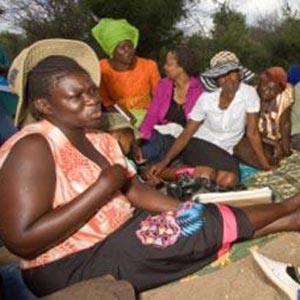
March is predominantly a “women’s month” with events ranging from World Day of the Fight against Sexual Exploitation which falls on March 4, to the International Women’s Day on March 8.
Sunday View with Chido Sibalo
It is important for the world to see if Zimbabwe is not only a signatory to various protocols and declarations, but if it is also adhering to all of them, especially those pertaining to the right to information.
Zimbabwe has also been a signatory to a number of instruments that encouraged gender equality in all institutions including the media.
For starters; Zimbabwe, like all other African countries reached the end of the time line target for the Sadc Protocol on Gender and Development. This protocol was urging all media and decision making bodies in the region to achieve gender parity by 2015 and in line with the Millennium Development Goal 3 (MDG3), which encouraged the promotion of gender equality and women empowerment.
The situation on the ground however shows that there are still wider gender inequalities with a few women accessing the right and relevant information and holding decision making positions in the media.
While some might claim that issues of patriarchy, structures and attitudes of society are an old cliché and a tired jingle, it is clear that they still play a pivotal role and have an invisible hand in giving women second class citizenship when it comes to the right to give and receive information, access to resources and power.
Generally when it comes to decision-making bodies, first preference is given to men and where women are given an opportunity to lead, it is not in a deliberate effort but just to satisfy an existing statutory instrument or policy.
- Chamisa under fire over US$120K donation
- Mavhunga puts DeMbare into Chibuku quarterfinals
- Pension funds bet on Cabora Bassa oilfields
- Councils defy govt fire tender directive
Keep Reading
In instances where both sexes cry for freedom of expression, it is puzzling that some men and women in the same struggle actually suppress women and fail to make room for them in their programmes, activities, politics and media. Even though our very own media laws are neutral, they are not gender sensitive to the specific needs of women.
Women face many constraints in their quest to access the right to information such as access to resources; this includes the media products too. Over the years it has become evident that it is men who occupy most decision-making posts; the media included.
Women have limited access to the public sphere — sports/social clubs and pubs — where critical issues are discussed. It’s definitely still a man’s world and not usually a women-friendly zone. Where women fit they are either labelled deviant by society or termed “one of the boys”.
Gender roles also keep women in the home, restricting their latitudinal movement.
Is it a coincidence that news bulletin slots of 1pm, 6pm and 8pm happen during socially constricted lunch and supper times when the man is relaxed and ready for his meal and the women are in the kitchen, missing out on the global conversations.
Not all is negative as government and other civil bodies have worked hard in making some notable differences in recent years. In the past Zimbabwean laws were discriminatory to the girl child.
The Marriage Act for example sanctioned the girl to be ripe for marriage at 16 years and the boy at 18 years. However, under the new Constitution, Section 78; under marriage rights stipulates that every person who has attained 18 years has the right to have a family.
Previously such early marriages used to block all access to further education and attainment of any skills in this never-ending cyber technological world where most worlds’ discourse is now available on the internet.











